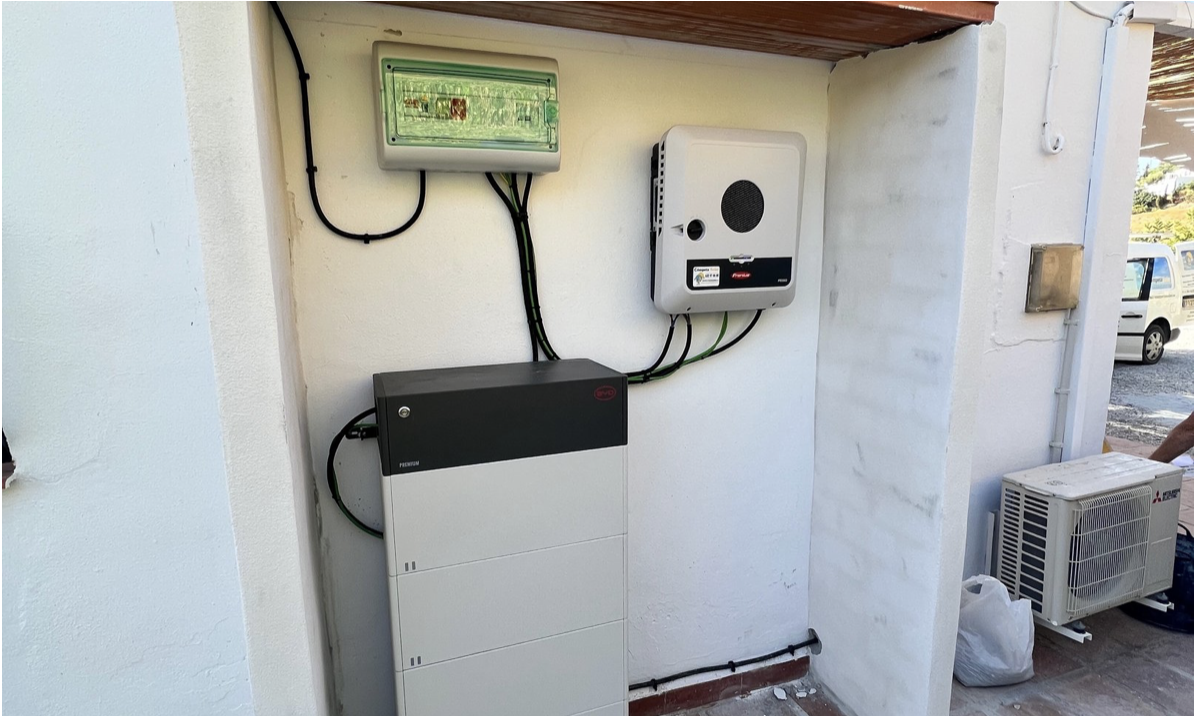Which Battery?

Title: The Advantages of Storing Solar Energy with Lithium Batteries
Introduction:
Solar energy has become an increasingly popular choice for households and businesses looking to reduce their carbon footprint and lower energy costs. While solar panels generate clean electricity during the day, storing excess energy for use at night or during cloudy periods has been a challenge. However, with the advent of battery storage systems, it is now possible to store surplus solar energy and utilize it when needed. In this blog, we will explore the benefits of using batteries to store solar energy, with a particular focus on the advantages of lithium batteries over traditional lead acid batteries.
1. Energy Independence:
One of the significant benefits of using batteries to store solar energy is achieving energy independence. By coupling your solar panel system with a battery storage solution, you can store the excess energy produced during the day and utilize it during the evening or during power outages. This reduces your reliance on the grid and provides a reliable and uninterrupted power supply.
2. Increased Self-Consumption:
Battery storage allows you to maximize self-consumption of solar energy. Instead of exporting excess energy back to the grid, you can store it for later use. This helps to offset electricity costs by reducing the need to purchase electricity during peak hours when rates are higher.
3. Time-of-Use Optimization:
Many electricity providers now offer time-of-use (TOU) billing, where electricity prices vary based on the time of day. With a battery storage system, you can strategically charge your batteries during low-demand, low-cost periods and discharge them during peak times when electricity prices are higher. This allows you to optimize your energy usage and potentially save on electricity bills.
4. Backup Power:
In areas prone to power outages or with unreliable grid infrastructure, having a battery storage system provides an essential backup power source. During blackouts, the stored solar energy can power critical appliances and keep essential systems running, such as refrigeration, lighting, or medical equipment. This enhances both convenience and safety for households and businesses.
Advantages of Lithium Batteries over Lead Acid Batteries:
a. Higher Efficiency: Lithium batteries are known for their high charge and discharge efficiency. They can store and release energy with minimal losses, ensuring that more of your solar energy is effectively utilized.
b. Longer Lifespan: Lithium batteries have a significantly longer lifespan compared to lead acid batteries. They can endure more charge cycles, allowing them to provide reliable energy storage for a more extended period. This longevity translates into reduced maintenance and replacement costs.
c. Greater Energy Density: Lithium batteries offer a higher energy density, meaning they can store more energy in a smaller physical footprint. This is especially important for residential and commercial applications where space may be limited.
d. Lightweight and Compact: Lithium batteries are lightweight and compact, making them easier to install and integrate into existing solar systems. They require less space and can be mounted on walls or placed in confined areas.
e. Faster Charging: Lithium batteries have faster charge rates compared to lead acid batteries. They can absorb energy more quickly, allowing for faster recharging times and reducing downtime.
Conclusion:
Utilizing battery storage to store excess solar energy brings numerous benefits, including energy independence, increased self-consumption, time-of-use optimization, and backup power. When considering battery options, lithium batteries outperform traditional lead acid batteries due to their higher efficiency, longer lifespan, greater energy density, compact size, and faster charging capabilities. By investing in a lithium battery storage system, you can fully harness the potential of your solar panel installation, maximize energy savings, and contribute to a greener and more sustainable future.
